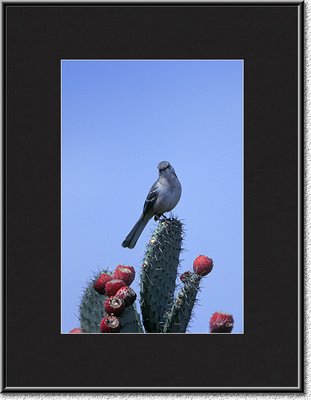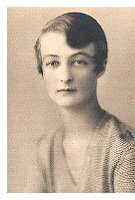I mentioned before that Doerr's writing seemed more like painting to me than linear narrative — and not just because the big-picture is always informing the details, but because she's a great designer, because she uses careful details to inform the big picture. It's sort of how like Woody Allen's films are visually thought out to the very last detail, like how in "Alice" all the colors are autumnal and imperceptibly build a very certain mood. Or how in the film "Trafffic" all the scenes in Mexico are lit differently. You know you are in Mexico now just because of the light. Doerr's chapter "Christmas Messages" is a good example of this. She writes:
"It began like any other winter day, with the oyster light of dawn ..."
We learn at the end of the chapter that that day would be the first day of snow in 60 years. But she doesn't begin with that dramatic statement. She ends with it. She builds to it:
"..beyond numb December fields ... the eastern light, turned opal by now..." (the light falls on the Evertons' faces ... Doerr sees them like a painter would)
a man's shirt "drying on a cactus under the wan sun."
of winter: "they knew all its dusks and daybreaks"
"Sara believed that the landscape, by its own force, had arrested time."
"at least util a later day, which might dawn warmer, with a yellower sun, and enough light to cast the shadow of a tree."
"Since four o'clock a heavy gray ceiling has strung itself from hilltop to hilltop ..."
And they lay abed that day, while the clouds gathered and the village drama went on around them. Doerr's way of saying they made love is so exquisite: " The Evertons had gone back to bed after the visit of Luis ... The wool robe and pajamas were slipping inch by inch from the foot of the bed to the floor... One hour later they were still in bed, and when Luis returned to knock on the door a second time there was some delay before they answered."
And then the sky falls out and the snow that has been coming all day comes.
(Doerr is fantastic)



 Did anyone else feel that Sara and Richard were sort of thinly drawn? I can't help but think this was intentional, to make them seem more wraithlike in their foreign home and in Richard's coming death. (I looked up "wraith" in my dictionary to make sure I was using it properly, and it said, "the exact likeness of a living person seen usually just before death as an apparition.") I think Sara even felt like a wraith at times — thus her admonition to "Bring stones," i.e., something to weigh down the existence that was here, to give it substance, permanence, memory. I think that's a beautiful effect, but sometimes I wanted more of these characters, to have a more material feel for them, to get inside their emotional shell. Do you think, though, that that would have destroyed the specter-thin atmosphere of the novel?
Did anyone else feel that Sara and Richard were sort of thinly drawn? I can't help but think this was intentional, to make them seem more wraithlike in their foreign home and in Richard's coming death. (I looked up "wraith" in my dictionary to make sure I was using it properly, and it said, "the exact likeness of a living person seen usually just before death as an apparition.") I think Sara even felt like a wraith at times — thus her admonition to "Bring stones," i.e., something to weigh down the existence that was here, to give it substance, permanence, memory. I think that's a beautiful effect, but sometimes I wanted more of these characters, to have a more material feel for them, to get inside their emotional shell. Do you think, though, that that would have destroyed the specter-thin atmosphere of the novel?
